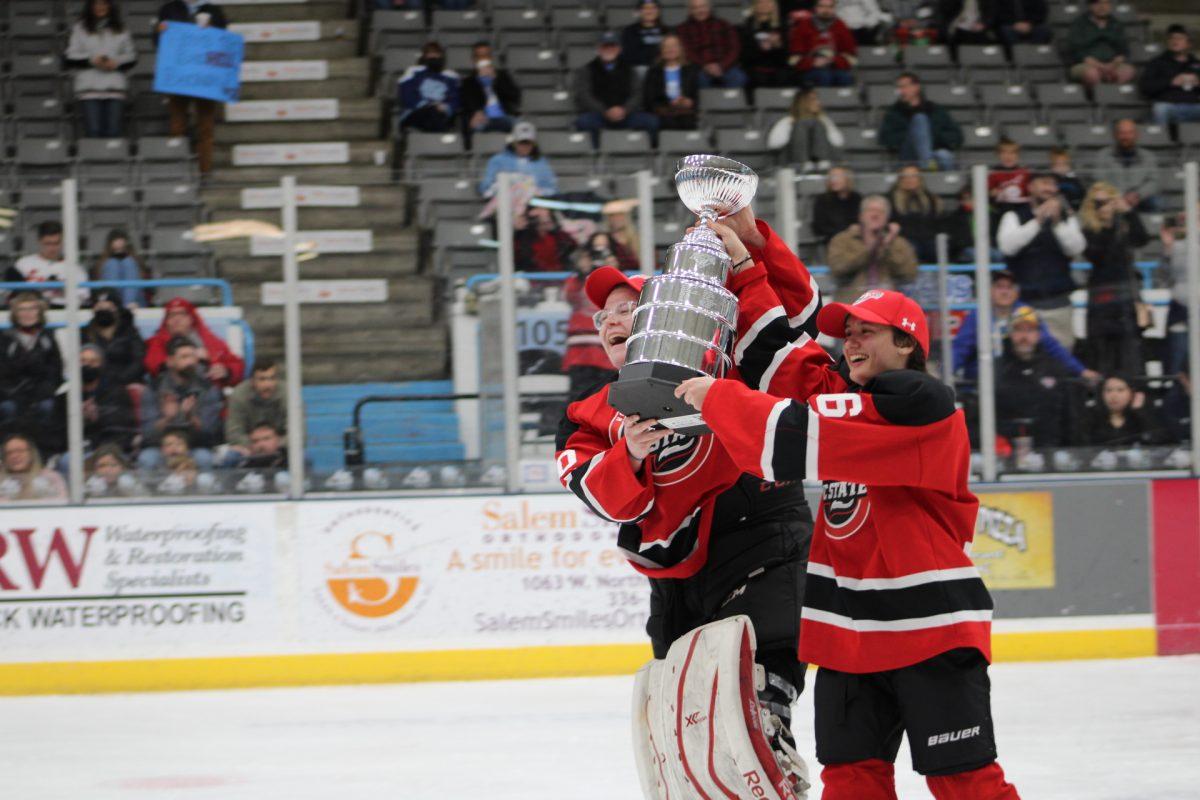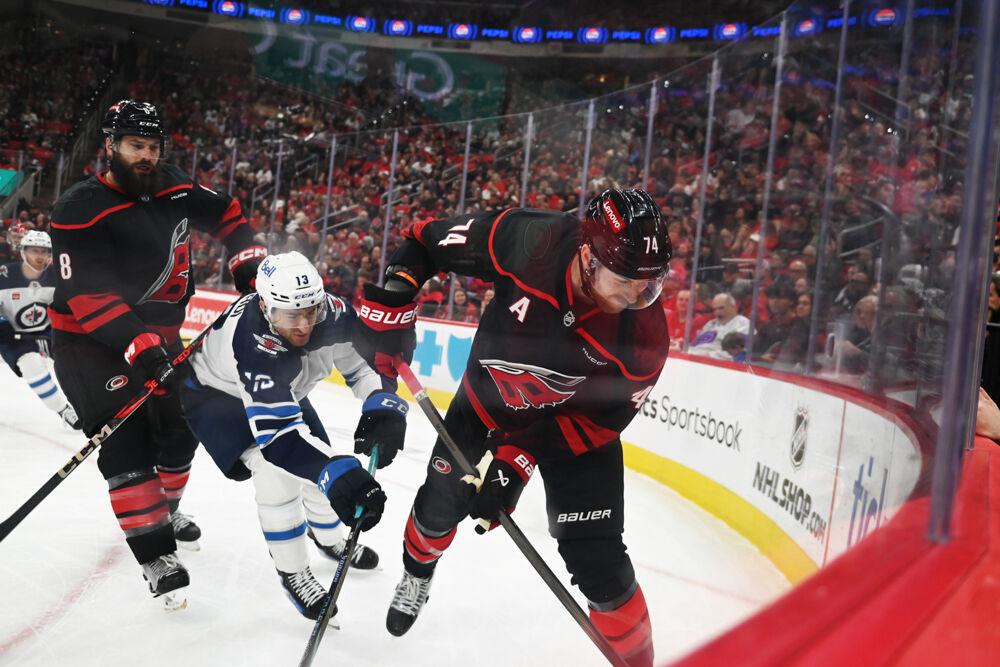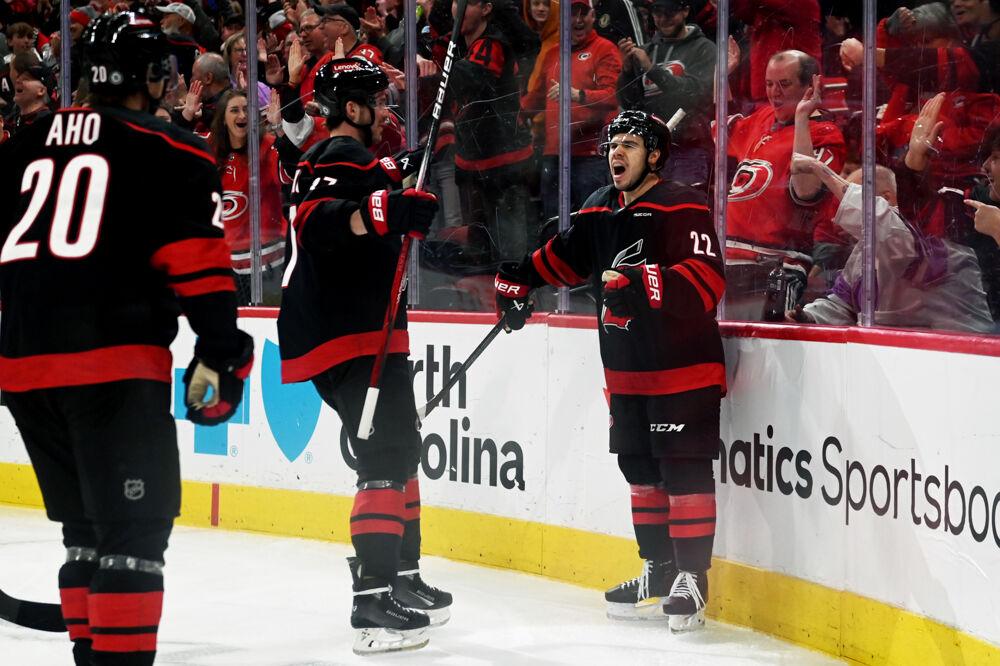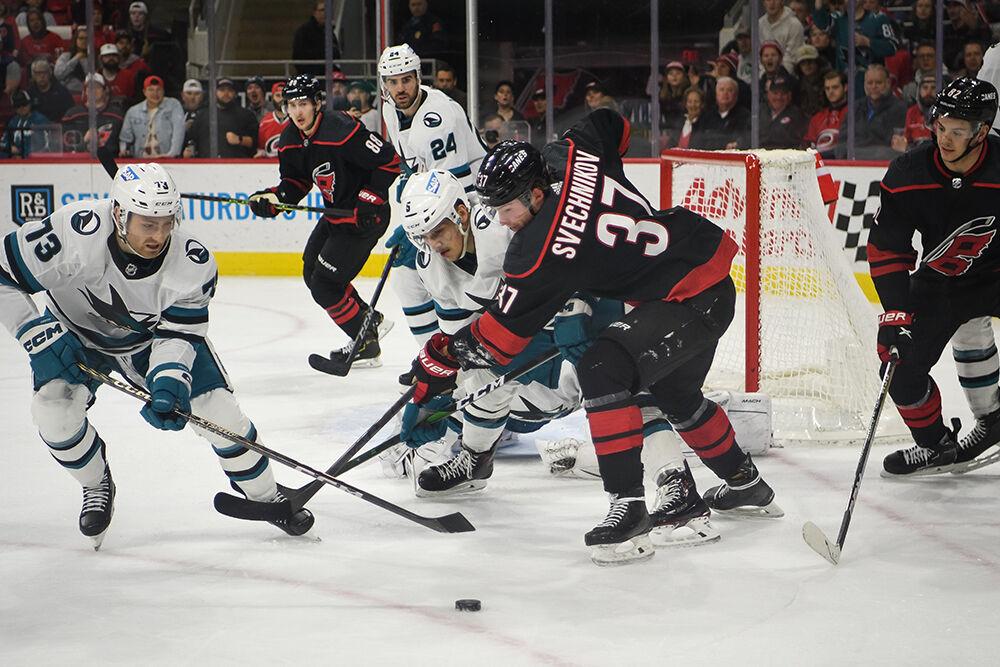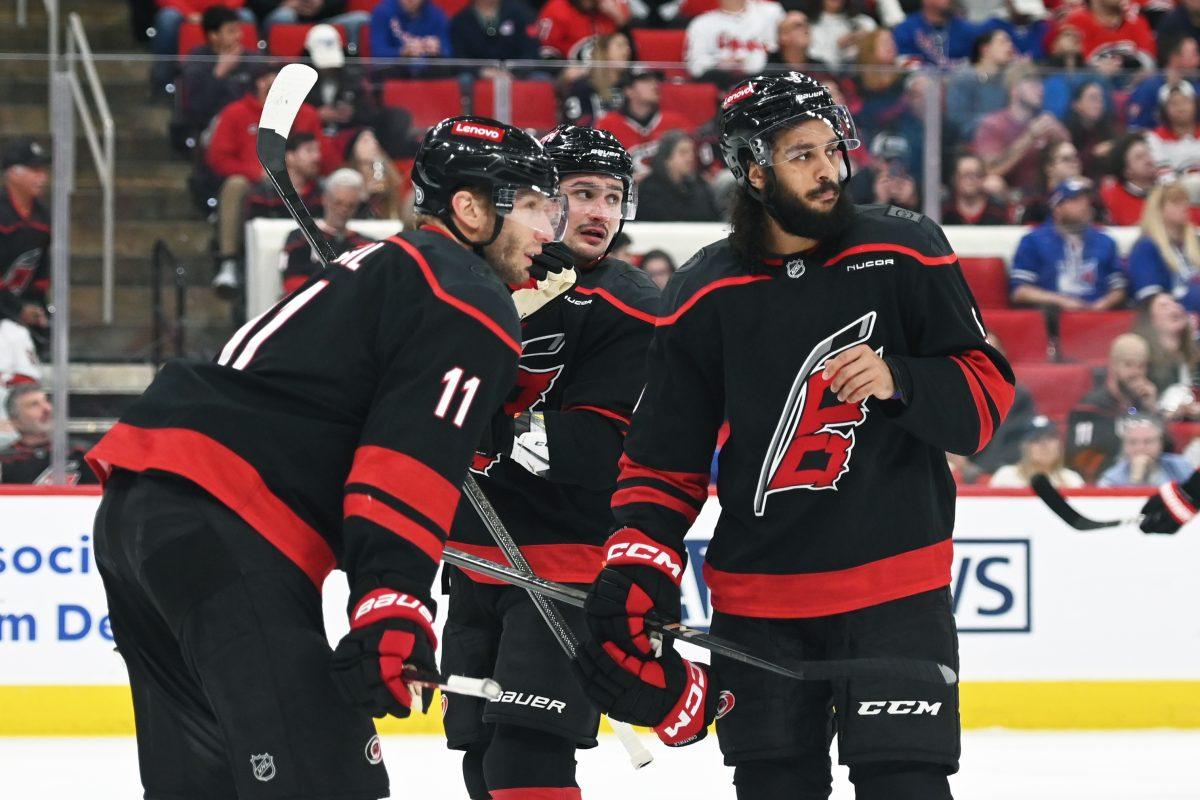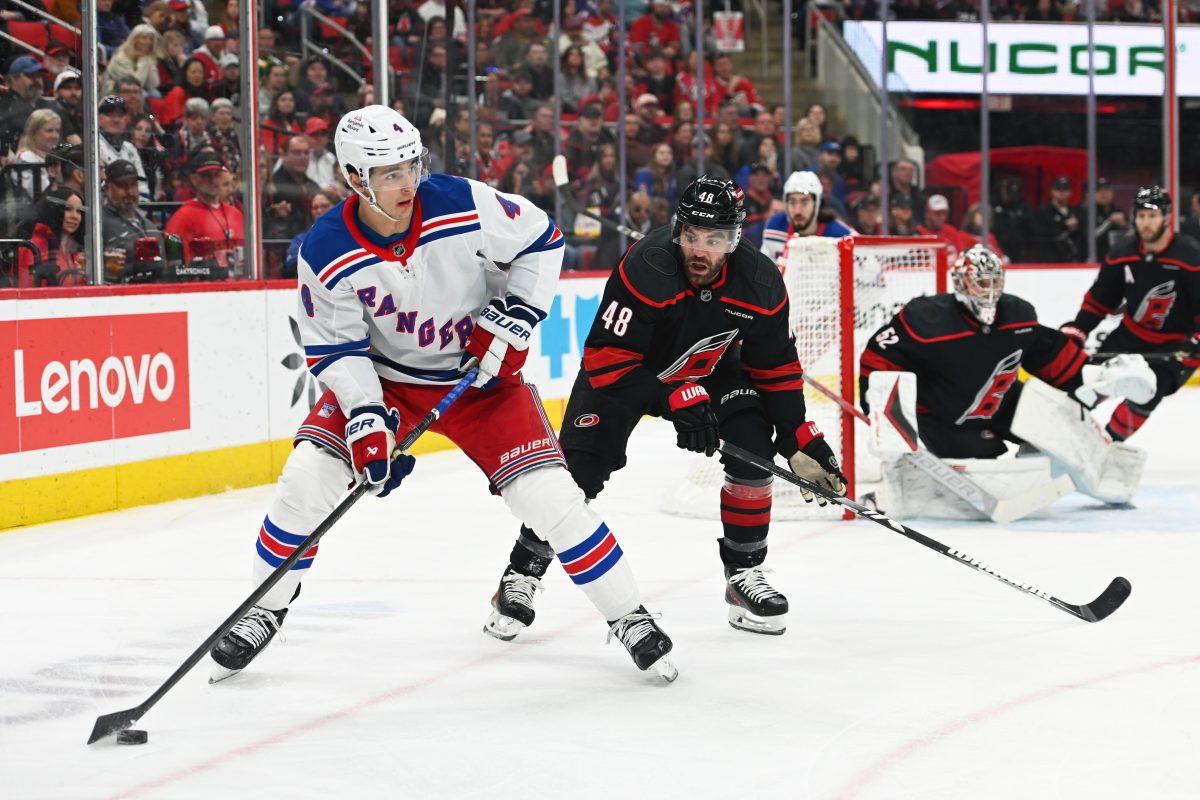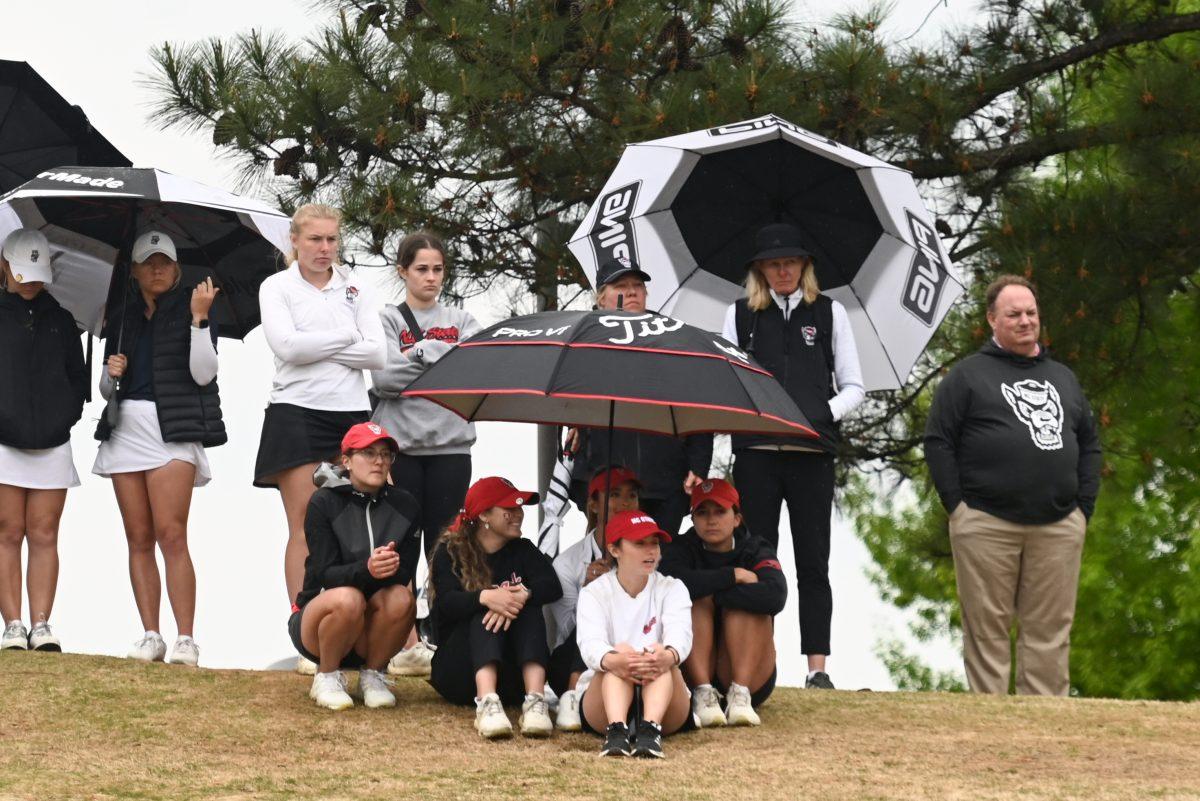Emily Petersen didn’t come to NC State to start a women’s club hockey team.
Before the NC State women’s club hockey team played the inaugural Atlantic Coast Collegiate Hockey League women’s game, before the Pack won its first-ever WACCHL title, the senior forward was a freshman at NC State with “no intentions” of starting a women’s hockey program from scratch.
Despite around 13 years of hockey experience, Petersen was simply playing out her last season of youth hockey with the Carolina Eagles before starting a collegiate team came on her radar. The ball got rolling when former Icepack head coach Mike Gazzillo made a guest appearance at an Eagles practice around Christmas in Petersen’s freshman year. That day, Petersen and Gazzillo laid the foundation of what would become the NC State women’s club hockey team.
“[Gazzillo] was guest-coaching that practice,” Petersen said. “Someone’s dad was like, ‘Hey, he’s the men’s coach. You got to go talk to him.’ I was like, ‘Yeah, whatever.’ I got on the ice and the dad was still watching me to make sure I talked to Mike. So I said to Mike, ‘Hey, I’m Emily, I go to State.’ He’s like, ‘I want to talk to you about starting a women’s team. I think there’s enough interest.’”
As it turns out, Gazzillo was right. Senior goaltender Veronica Heyl was playing with the Eagles as well at the time, and six players turned out for the Wolfpack’s first practice. Even though only three of them had any previous hockey experience, Petersen continued to help develop the program with help from the Icepack.
The Pack continued to grow off the ice as well as on the ice. NC State reached the WACCHL championship game in 2021, but fell 9-7 to the Virginia Tech Hokies. A year later, Petersen closed out her collegiate hockey career with a bang. The Wolfpack rode a Petersen hat trick to beat the West Virginia Mountaineers 6-4 and win its first conference championship.
To go from a quick conversation between a guest coach and a freshman to now sitting atop the league, Petersen has certainly built a legacy for women’s hockey at NC State.
“To go from sharing practices to having a full program and being a program to where the little girls will come out to the games and be like ‘Oh, that’s so cool,’” Petersen said. “Or someone will be like, ‘My daughter wants to play for State.’ It’s been so cool because those opportunities weren’t there. When I was a freshman here, these opportunities weren’t here, so that’s been really cool to see.”
Head coach Jessie “Boston” Harrington was another big difference-maker for the program, eventually finding her way to the Pack before that championship season. Even though she was a late-comer to the team, Harrington’s brought nearly 30 years of experience in women’s hockey to the table.
“I’ve only been with the program since about the middle of October,” Harrington said. “I had been part of the Canes girls program. … That is actually how I met Emily and Heyl. All three of us were coaching through that program since about September.”
In a sequence of events that reads like a cheesy movie script, the players essentially pestered Harrington into taking the helm. Even though Harrington eventually caved and accepted the head coaching role, that was just the beginning of her adjustment to working with college students.
“One of the things that I think I took for granted … was that there’s a lot of things that I take as second nature,” Harrington said. “There’s a lot of things that I instinctively do on the ice that I feel like, ‘Well, what do you mean, you don’t know?’ And that’s been the biggest learning curve.”
Though Petersen is at the end of her college hockey career, the program she helped start has a ton of momentum going forward. From its grassroots nature to its meteoric rise, the NC State women’s club hockey team’s culture of commitment and effort sets it up for success for years to come.
“If you see what Emily has started with that program, from a grassroots effort … to where it is now, [it’s] strictly just to play the game,” Harrington said. “It’s been fun; it’s been an interesting change to give back. I look at these girls that learn to play now and I say, ‘10 years from now, it’d be pretty neat if you’ve got a pretty good backyard program and a fantastic university.’”


